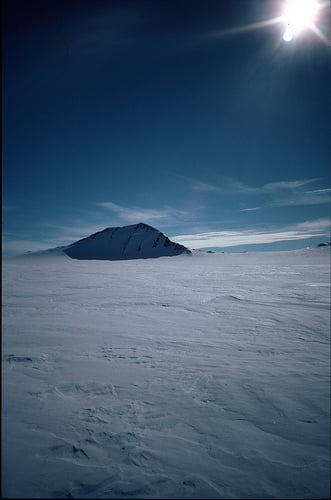

Environment
Antarctic region melting twice as fast as first feared
The western part of Antarctica’s ice sheet is melting twice as fast as initially thought, according to an investigation into the region’s contribution to sea level rise.
The study, conducted in the US by researchers at Ohio State University, the National Center for Atmospheric Research (NCAR) and the University of Wisconsin-Madison,
“Our results indicate that temperature increases during the past half century have been almost twice what we previously thought, placing West Antarctica among the fastest warming regions on Earth”, said NCAR scientist Andrew Monaghan, co-author of the research that was published in Nature Geoscience.
“A growing body of research shows that the West Antarctic ice sheet is changing at an alarming rate, with pressure coming from both a warming ocean and a warming atmosphere.”
The research by the US teams appears to be consistent with findings from scientists at Durham University in October, who claimed that Antarctic ice sheet retreat can briefly stop during extended phases of global warming, making it appear like glaciers are not decreasing at all.
The team found that the make-up and movement of below-ice channels hold significant influence on the activities of much of the ice. This action, it says, can hide signs of ice sheet retreat.
David Bromwich, professor of geography at Ohio State University and senior research scientist at the Byrd Polar Research Center, who co-authored this latest research, said, “Our record suggests that continued summer warming in West Antarctica could upset the surface mass balance of the ice sheet, so that the region could make an even bigger contribution to sea level rise than it already does.
“Even without generating significant mass loss directly, surface melting on the West Antarctic ice sheet could contribute to sea level indirectly by weakening the West Antarctic ice shelves that restrain the region’s natural ice flow into the ocean.”
The UK government recently revealed that it would not be closing the British Antarctic Survey – an organisation that has led exploration into the region for decades – despite initial fears that it would be merged with another polar research centre.
Further reading:
Channels below the surface found to mask Antarctic ice retreat
Government decides not to merge polar research centres
British and Chilean Antarctic research centres set for collaboration
Arctic shown to break several ice records as transformation in climate continues


 Environment12 months ago
Environment12 months agoAre Polymer Banknotes: an Eco-Friendly Trend or a Groundswell?

 Features11 months ago
Features11 months agoEco-Friendly Cryptocurrencies: Sustainable Investment Choices

 Features12 months ago
Features12 months agoEco-Friendly Crypto Traders Must Find the Right Exchange

 Energy11 months ago
Energy11 months agoThe Growing Role of Solar Panels in Ireland’s Energy Future




























